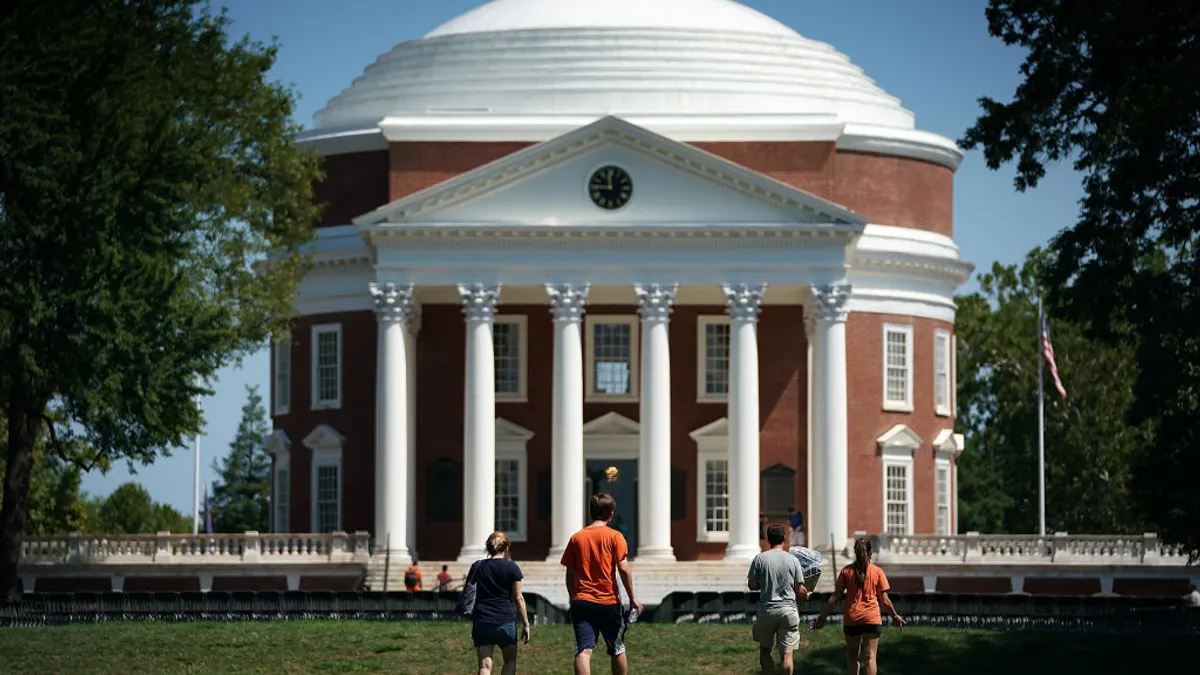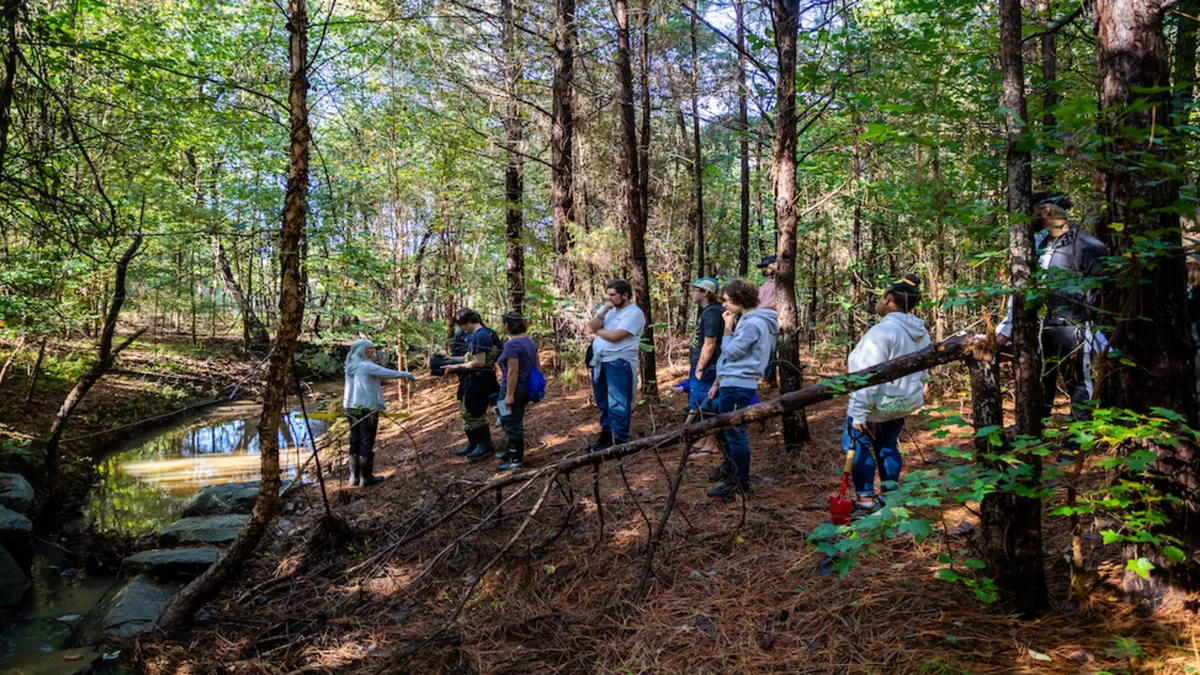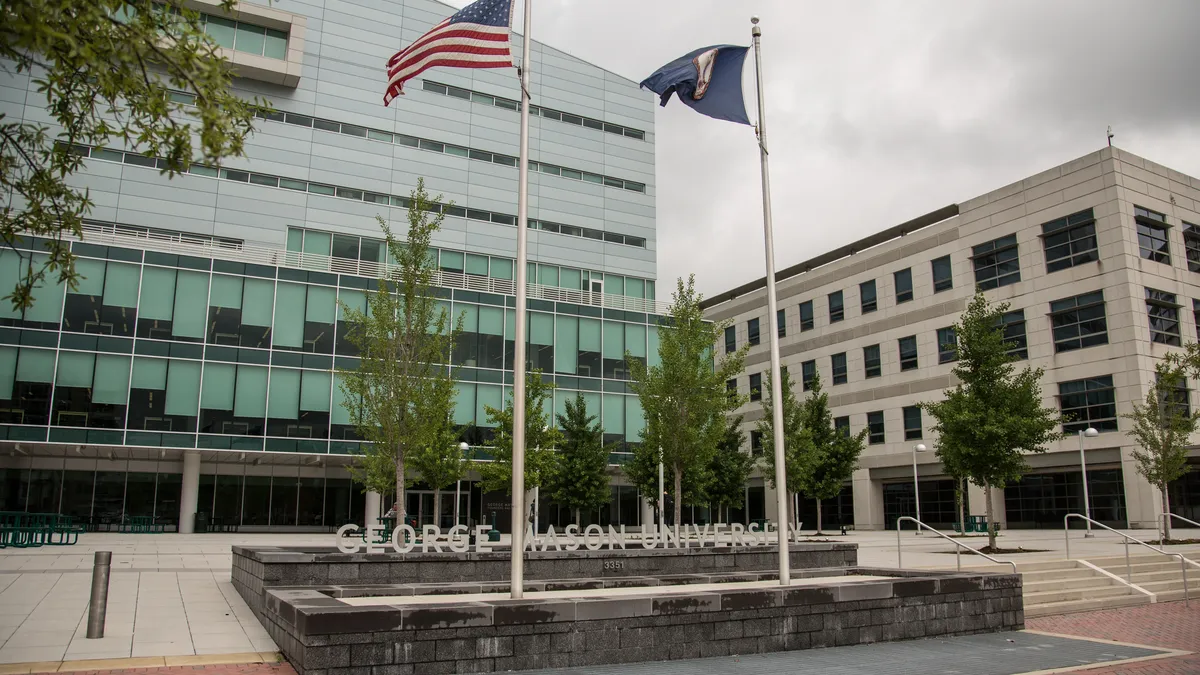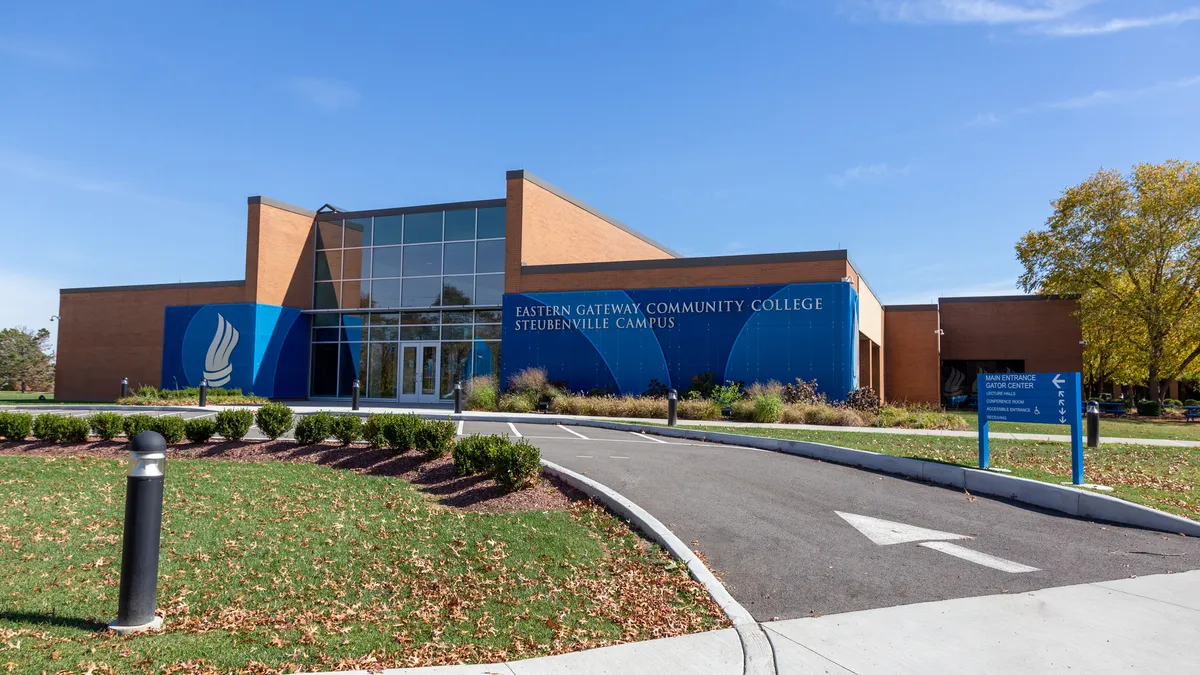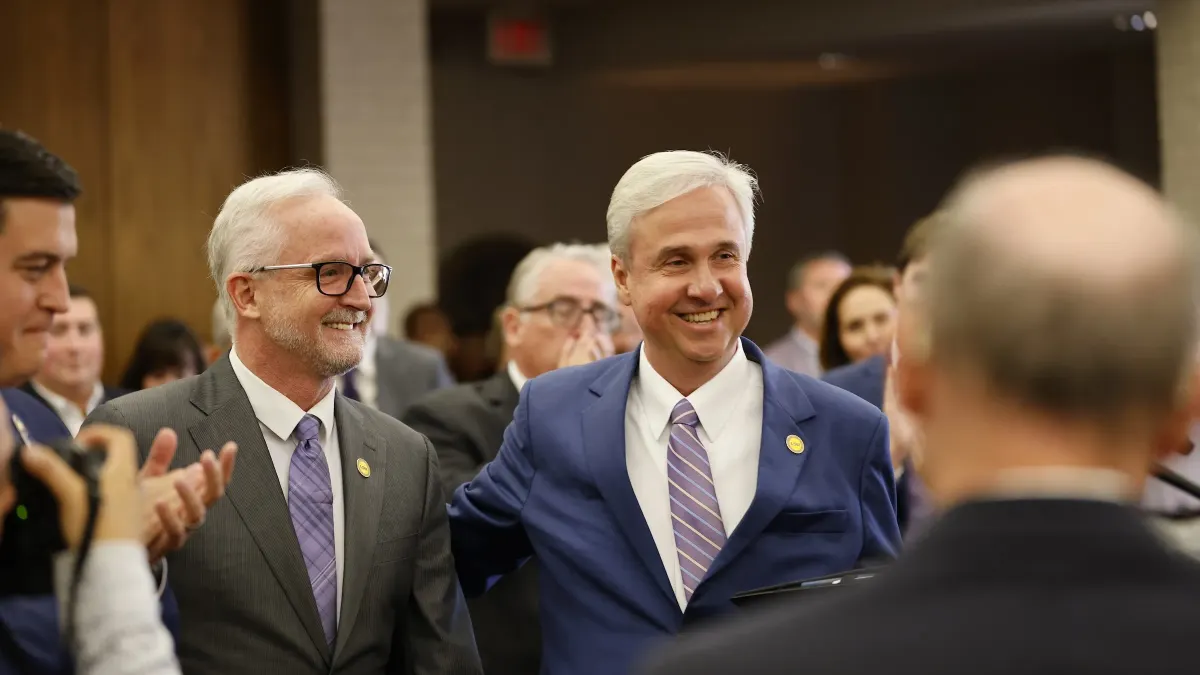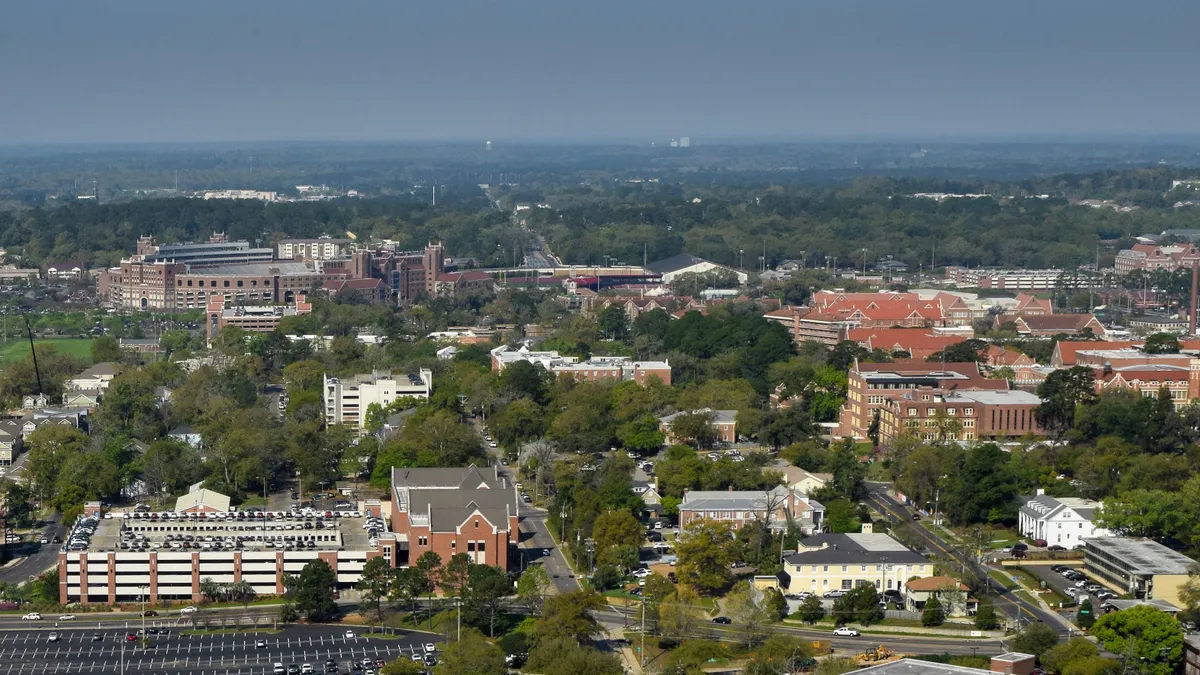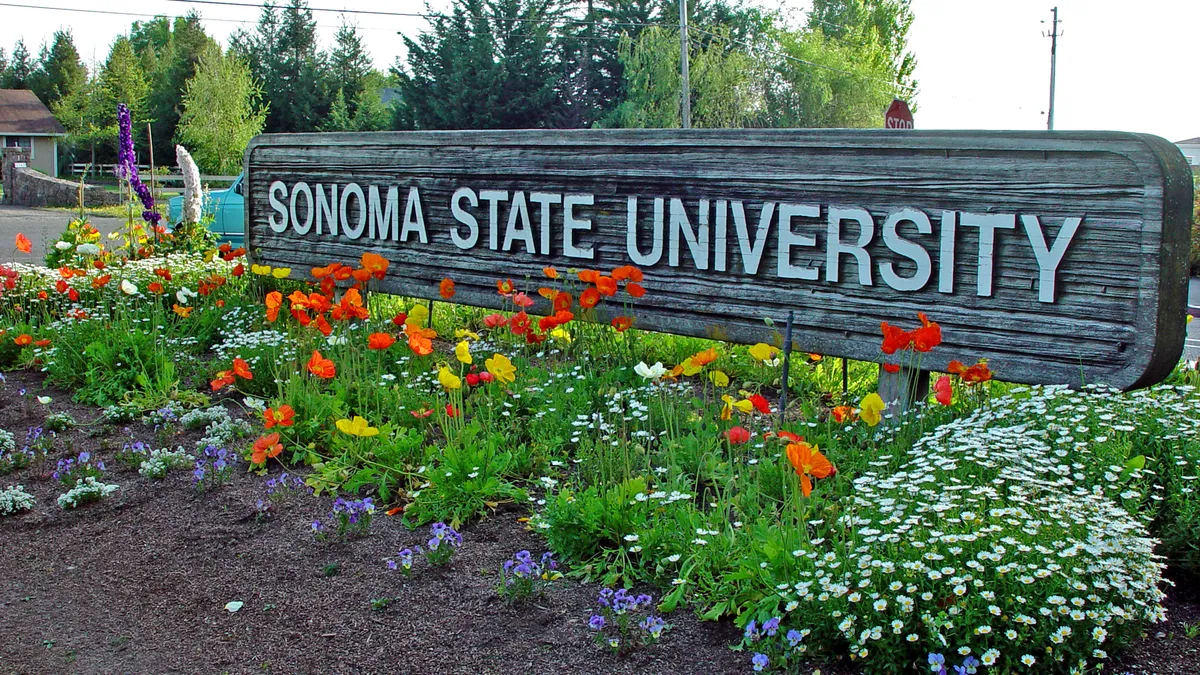When administrators at Western Washington University posted the words "Enough is Enough" on the college's homepage after George Floyd, a Black man, was killed in an encounter with police last spring, Black students at the Bellingham, Washington, institution decided that they, too, had had enough. Enough of the expressions of outrage; the statements of solidarity; the conversations about change that seemed to go nowhere. They wanted action.
"It felt empty," said Selome Zerai, who helped craft a list of two dozen demands that students posted on the website Change.org in June. They include a space for Black students to gather and the creation of a cross-cultural education course within each major.
The petition, which has collected more than 3,500 signatures, warned that Black students would sever ties with the university's Ethnic Student Center and student government, and "take future steps of retribution, including contacting Black alumni, and university donors" if their demands weren't met.
"As Black students, we are tired of being tokenized," the petition read. "We are tired of being ignored."
It wasn't the first time students of color at Western Washington had agitated for sweeping change. Four years earlier, a group calling itself the Student Assembly for Power and Liberation sent a list of far-reaching demands that the trade publication Inside Higher Ed called "some of the … most expansive — and resource heavy — demands put to a university's administration" and The Atlantic labeled "self-defeating radicalism."
This time, however, the students got a swift response.
In a message to the campus, President Sabah Randhawa detailed several actions the university would take to "acknowledge and correct the past and ongoing injustices." They include requiring all students to take a course in African American studies and structural anti-Black racism.
The fight for a more inclusive college curriculum is not a new one. For years, students and faculty nationwide have been calling on campus leaders to hire more faculty of color, mandate ethnic studies and incorporate diverse perspectives into all courses.
But the protests that followed the killing of three Black individuals by police — George Floyd, Breonna Taylor and Tony McDade — over a three month period this year have given momentum to the movement, accelerating changes that were already in the works and putting pressure on colleges that have resisted mandates to consider them.
Among the most notable examples is the California State University System, which is in the process of implementing a law — passed by the state legislature this summer — that will require all incoming students to take a course in ethnic studies starting next fall. The system enrolls some 430,000 undergraduates across its 23 campuses.
The protests "really compelled" legislators and the governor to pass and sign the bill, said Melina Abdullah, a professor of Pan-African Studies at California State University, Los Angeles, who has been pushing for the requirement since 2013, first on her campus, and then systemwide. "It would have been difficult for our progressive governor to veto a Black Lives Matter-sponsored bill." (Abdullah is a co-founder of the city's Black Lives Matter chapter).
Yet not everyone supported the change. State Sen. Brian Jones, a Republican who represents parts of San Diego county, was among those who argued that ethnic studies should remain optional.
"Forcing students to take an ethnic studies course, which will likely result in cutting out one of their classes focused on their career development and possibly delaying their graduation and entry into the workforce, is not appropriate nor wise," he said in a statement.
A culture of competition
Research shows that ethnic studies courses benefit students of all races, promoting racial understanding, perspective taking and a commitment to civic affairs, particularly when the classes include interaction among students from different groups.
But curricular change is never easy, especially when it involves the core curriculum. A college can mandate only so many classes, so new requirements often displace existing ones. Faculty who feel threatened by a change will often resist it.
"A curriculum has its boundaries and limitations," said Matthew Shenoda, associate provost for social equity and inclusion at the Rhode Island School of Design, which is working on its own social justice course requirement. "A shift in values drives a shift in budgets as well."
When Cal State's Abdullah and her colleagues brought an ethnic studies proposal for their campus before its Academic Senate in 2014, some faculty argued that students would be better served by taking a second lab science, Abdullah said.
Abdullah believes the "culture of competition" that pits college departments against one another is used to justify decisions that are driven more by bigotry than curricular constraints.
"There's this idea that competing for space in the general education curriculum is not institutional racism," she said.
Sometimes, however, the racism is overt. At San Diego State, a faculty meeting held this summer to discuss a resolution requiring all criminal justice majors to take a class on race relations and policing was interrupted by Zoom bombers, who made racist and threatening remarks, according to the college paper.
The requirement passed, and it has become a model for other Cal State campuses as they implement the new state law, said J. Luke Wood, San Diego State's vice president for student affairs and campus diversity. Wood has heard from dozens of college leaders nationwide who are weighing similar changes to their programs.
San Diego State is also developing a race and policing certificate for existing officers. Courses are being crafted by a committee that includes police officers and community-based organizations, and will be co-taught by an academic and an officer, said Roddrick Colvin, a professor of public administration at the university.
"The topic of race in policing is a sensitive — if not fraught — conversation, so our approach has been to bring together stakeholders to develop these courses," Colvin said. "There is this divide between what we know in the academic, social science world and what officers on the ground know, and bringing those together is always a challenge."
Time and money
Even when a proposed program or course requirement is popular, it can take years to get it through the university bureaucracy. At Sam Houston State University, which says it conferred just over a quarter of the criminal justice degrees in Texas last year, a new minor and planned certificate in criminal justice equity and inclusion were three years in the making.
Jason Ingram, undergraduate program director for the college's department of criminal justice and criminology, said it took time to develop a new course, update an existing one, and usher the programs through four layers of review, culminating with the board of trustees.
Ingram advises faculty who want to create new programs to build broad support for them early on.
"You have to have a commitment from more than one person or a few people teaching the courses," he said. "This needs the support of everyone."
If a college has faculty members with expertise in racial justice and equity, the costs involved in delivering a new course or program can be negligible. If it doesn't, they can be considerable: The college will have to hire new faculty or train existing ones.
"A curriculum has its boundaries and limitations. A shift in values drives a shift in budgets as well."

Matthew Shenoda
Associate provost for social equity and inclusion, Rhode Island School of Design
The Rhode Island School of Design was fortunate: It received an anonymous $5 million gift to hire 10 faculty with expertise in areas such as race and decolonization in art and design. So was San Diego State, which has "a highly progressive faculty who do this work already," Wood said.
But California's 115 degree-granting community colleges still aren't sure how they'll cover the costs of offering ethnic studies on every campus if students must take the class during the first half of their coursework, as the Cal State system insists. Dozens of community colleges offer no ethnic studies classes currently, and the system has estimated it would cost up to $45 million to hire enough faculty to teach them to all students.
At Western Washington University, planning for the new course is just getting started. Zerai, a senior computer science major, said she'd like to see her college go further, weaving conversations about race across the curriculum. But she's pleased the administration is taking students' demands seriously.
"They are definitely making changes and looking for other ways to support Black students," Zerai said. "At this point, I just want to go back to being a student and finishing my degree."





